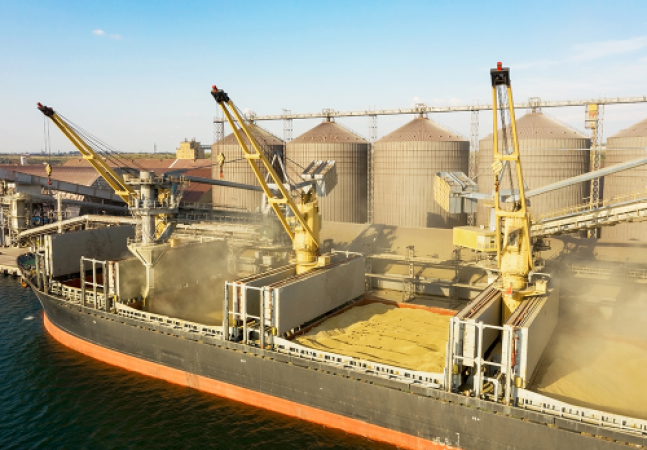
Moscow: According to Kremlin press secretary Dmitry Peskov, Russia is extending the agreement on the export of Ukrainian grain via the Black Sea that was mediated by the UN and Turkey.
Aleksandr Grushko, Russia's deputy foreign minister, earlier on Tuesday confirmed that Moscow agreed to renew the agreement but for only 60 days because it is still dissatisfied with the failure to obtain the lifting of Western restrictions on Russian trade in food and fertiliser. The contract was supposed to end on March 18.
You realise that the deal can't support itself on just one leg. As a result, the requirements for the extension are obviously quite flexible, Peskov told reporters about the extension.
Also Read: The strange assault in Cheltenham UK included an American lady working for GCHQ
In the hope that the conditions and obligations that were accepted by the well-known parties will be fulfilled after such a long time, Russia is making this gesture of goodwill, he added.
The press secretary noted that Moscow appreciates the efforts made by UN Secretary-General Antonio Guterres, who vowed to succeed in having the sanctions against Russian food and fertiliser lifted because of the conflict in Ukraine.
Also Read: FIFA announces a new schedule of international match
Unfortunately, Guterres was unable to "break through the blank wall of the collective West" and keep his promise, according to Peskov.
Moscow and Kiev finalised their ground-breaking grain agreement in July of last year in Istanbul, thanks to UN and Turkish mediation. It was designed to restart grain exports from Ukraine and Russia, two of the top exporters in the world, which had stopped as a result of hostilities between the two neighbours.
Also Read: Honduras desires formal diplomatic ties with Beijing rather than Taiwan
Moscow, which established the prerequisites for grain-carrying Ukrainian ships to leave Black Sea ports, has claimed that the deal largely failed to help the most vulnerable countries. While low-income nations in Africa and Asia are still unable to import Russian grain and fertilisers due to sanctions, the Russian side claims that the majority of Ukrainian produce is used to feed livestock in Europe.